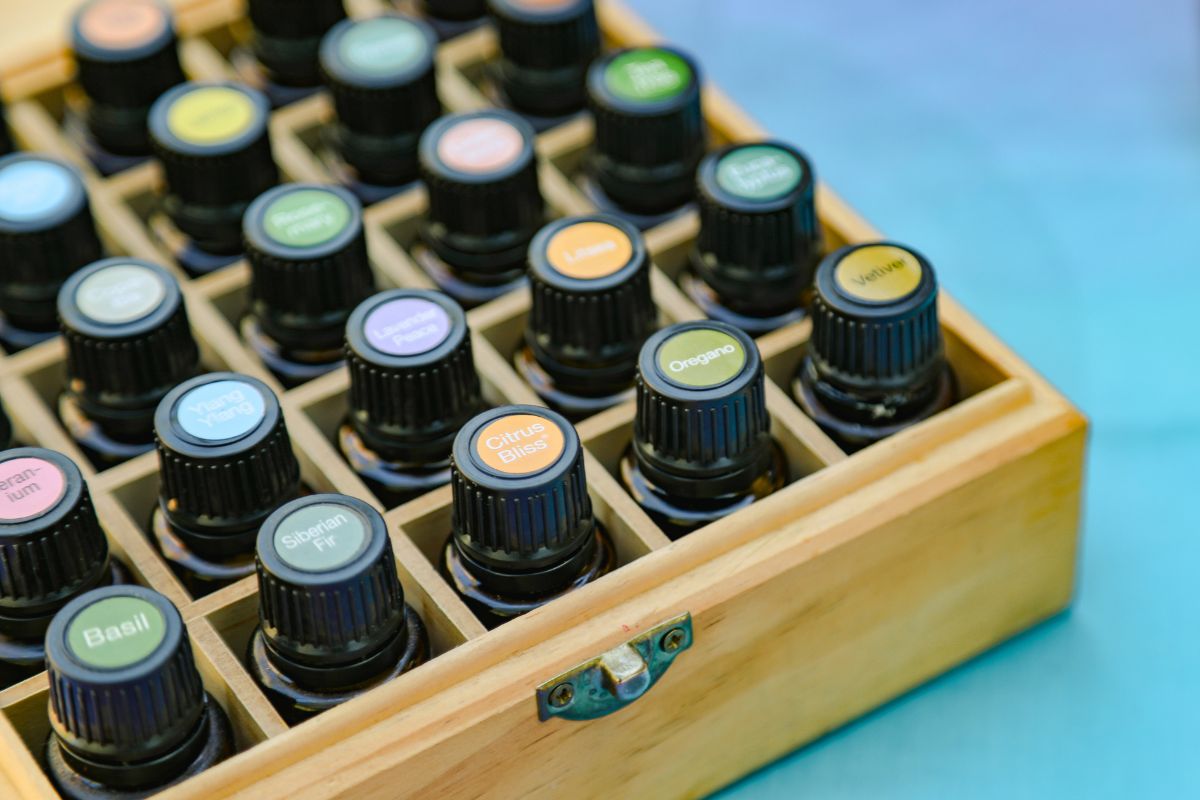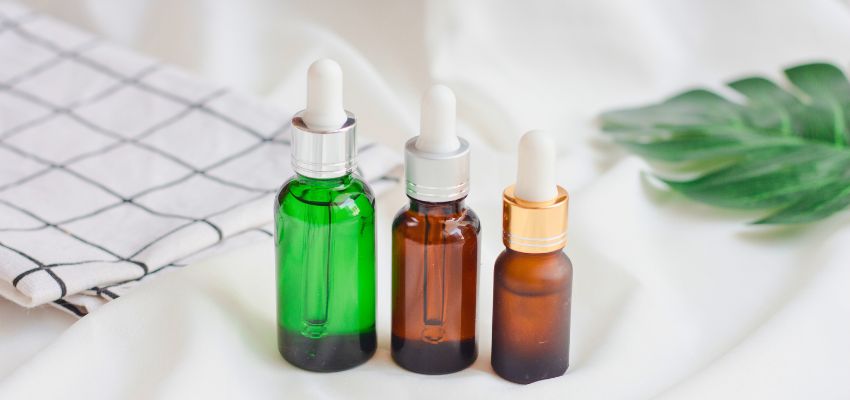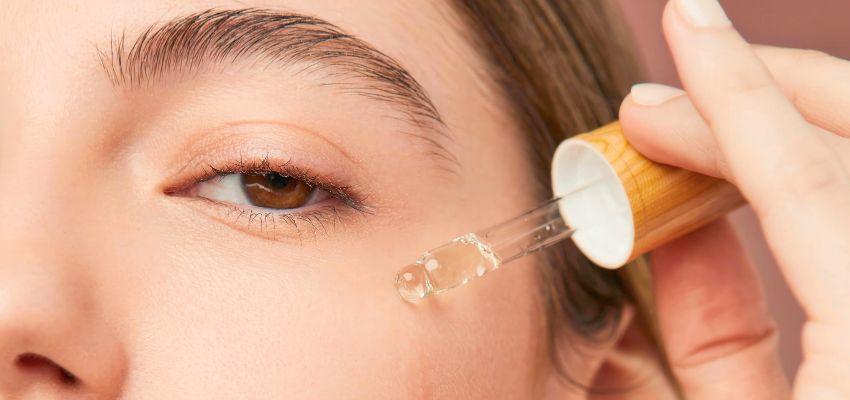Is Essential Oil Good for Skin? Insights You Should Know

Published September 19, 2025
Essential oils: the new darlings of the beauty world, or just another fad? They’re everywhere, from your diffuser to your favorite skincare products, promising everything from a radiant glow to a calm mind. But with so much buzz, it’s easy to wonder: Is essential oil good for the skin? Can these potent plant extracts truly transform your complexion, or is it just clever marketing?
In this article, we’ll explore the question: Is essential oil good for the skin? We’ll discuss what essential oils are, their benefits, risks, and safe usage practices. With this knowledge, you can decide if essential oils belong in your skincare routine.
What Are Essential Oils, And How Do They Affect The Skin?
Essential oils are potent plant extracts made by distillation or cold pressing. They come from bark, leaves, flowers, or roots. Each oil has a unique scent and qualities, used for centuries in medicine and aromatherapy.
Essential oils can enter the skin and reach deeper layers thanks to their small molecules. They may improve moisture, reduce inflammation, and fight bacteria. However, skin reactions vary. Strong skin may tolerate them, but sensitive skin is easily irritated.

Benefits Of Essential Oils For The Skin
Used properly, essential oils may support skin health and appearance.
Antioxidant Protection
Many essential oils contain potent antioxidants. These shield skin from environmental stressors. They also deal with free radicals that cause premature aging and cellular damage.
Antibacterial And Antimicrobial Action
Tea tree and oregano oils fight acne bacteria and other microbes. Tea tree oil is a well-recognized natural antiseptic. Oregano oil also has strong antimicrobial effects to help reduce skin bacteria. These oils may help manage acne and support clear skin.
Anti-Inflammatory
Chamomile, lavender, and frankincense oils help soothe skin, reducing redness, irritation, and inflammation. They may help with eczema and rosacea.
Moisturizing And Nourishing
Combine the essential oils you plan to use with a carrier oil. You can use almond or jojoba. This deeply nourishes and moisturizes to achieve soft, radiant skin.
Soothing Skin Irritation
Oils like lavender and sandalwood have calming properties that can ease itchiness and irritation.
Addressing Skin Concerns
Some essential oils help with specific skin concerns. Some regenerate skin to reduce lines and wrinkles. Others even skin tone and minimize spots and blemishes.

Aromatherapy Benefits
Essential oils have natural scents that reduce stress. They promote relaxation and lower cortisol levels. This can indirectly support healthier skin.
Potential Risks And Side Effects
Essential oils are natural but very potent and must be used with care. High concentrations can lead to negative reactions if handled improperly.
- Skin irritation and allergic reactions: Symptoms can include mild redness and itching. In severe cases, contact dermatitis may develop. This can cause rashes, blisters, and discomfort.
- Photosensitivity: Some oils cause photosensitivity. Citrus oils like lemon, bergamot, and lime are examples. They increase skin sensitivity to UV light. Applying them before sun exposure can cause severe sunburns, blistering, or discoloration.
- Undiluted application: Applying essential oils directly to the skin is too harsh. It can disrupt the skin’s natural barrier. This leads to dryness, irritation, and increased sensitivity.
- Risks of specific essential oils: Some oils pose higher risks. Mint oils (peppermint) can cause a burning sensation, while cinnamon and clove oils are potent irritants.
Safe Usage Tips And Best Practices
To maximize essential oil benefits and minimize risks, follow proper application guidelines.
- Dilute with carrier oils: Always dilute essential oils with a carrier oil like jojoba, coconut, almond, or argan oil. A safe dilution for adults is typically 1-2%, which is around 6-12 drops of essential oil per ounce (30 ml) of carrier oil.
- Perform a patch test: Before application to a larger area, patch test it. Apply a small amount of diluted oil to a discreet area, like your inner wrist or elbow. Wait 24-48 hours to check for irritation.
- Avoid sensitive areas: Never apply essential oils near your eyes, inside your ears or nose, or on broken or damaged skin. These areas are more sensitive and prone to severe reactions.
- Consider timing and sun exposure: If using photosensitive oils (like citrus oils), apply them at night to avoid sun exposure. Alternatively, ensure the product contains a version of the oil with photosensitizing compounds removed.
Frequently Asked Questions
Can essential oils permanently damage skin?
Yes, if misused. Undiluted application or repeated allergic reactions can cause lasting damage, including scarring or skin color changes.
How do I choose quality essential oils?
Look for oils that are 100% pure, therapeutic-grade, and from trusted sources. Check the label for the plant’s botanical name and country of origin. Third-party purity testing is another reliable indicator of quality.
What if my skin reacts badly?
If you get redness, itching, or burning, wash with soap and water. Apply a plain carrier oil to dilute the remaining essential oil. If severe or lasting, see a healthcare professional.
Is lemon essential oil good for the skin?
Lemon oil can brighten skin and reduce oiliness, but it is very photosensitive. Only use at night and in low, safe dilution to avoid sun reactions.

Should You Use Essential Oils On Your Skin?
So, is essential oil good for the skin? Essential oils can benefit skin by providing antioxidant protection and reducing inflammation. However, essential oils are potent. Improper use can cause irritation, allergic reactions, and photosensitivity. To use them safely, always dilute, patch test, and understand each oil’s properties. Those with sensitive skin, existing conditions, or who are pregnant should consult a dermatologist before use. Weighing the advantages against the potential risks will help you decide if these extracts are right for you.
Want expert skincare advice beyond essential oils? At Salon Suites of Wellington, beauty and wellness professionals offer personalized treatments. Visit to get the glowing skin you deserve.
Rent Salon Space In Wellington Florida
Rent salon space in Wellington with us. Whether you’re a hairstylist, nail technician, or any other beauty professional, we provide the ideal environment to help your business thrive. Our Wellington salon suites offer a wide range of benefits, including complimentary cleaning services, flexible lease terms, and a welcoming atmosphere designed to make your clients feel at home. Elevate your career and build your brand by leasing salon space in Wellington.

About The Author
Meet Rei Bayucca, a professional writer and passionate expert in all things related to beauty. Every article is purposely designed to assist you in tackling your most challenging dilemmas. Rei’s knack for creating engaging content is guaranteed to ignite your curiosity.




